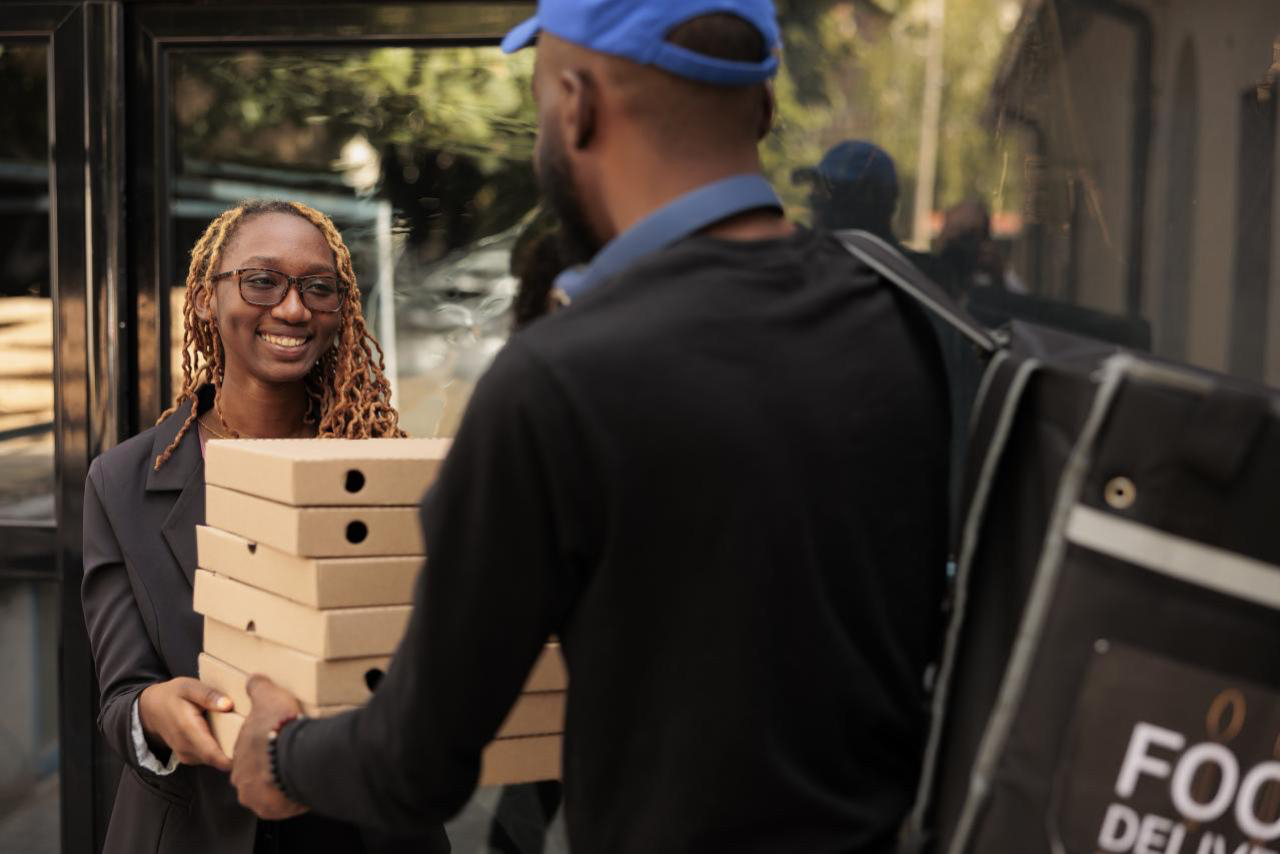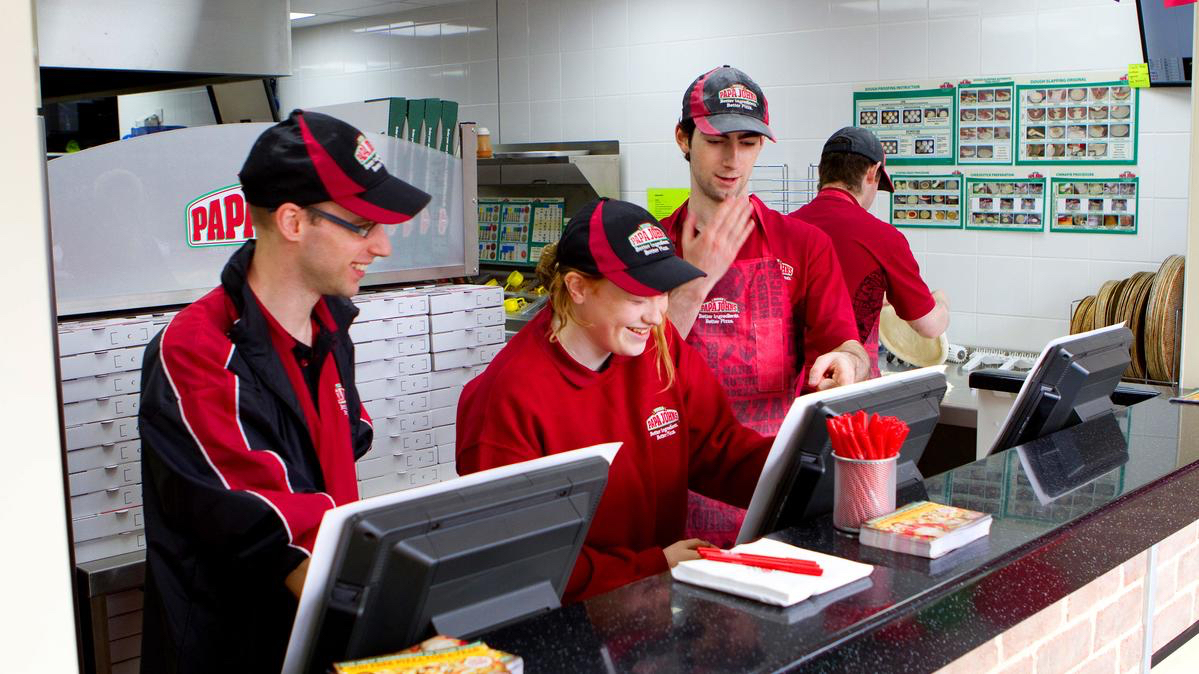In uncertain economic times, the benefits of a franchised business model always appeal to entrepreneurial individuals.
Greater control and stability
With the UK having begun the year on the brink of recession, the possibility of layoffs and other job losses inevitably increase workers’ desire to secure their livelihoods. While starting your own business may be a clear way of restoring control over your finances, many will be concerned about how economic instability will impact any new venture.
For example, ongoing dissatisfaction with pay and working conditions has seen an uplift in franchise brands welcoming new employees, and investors exiting a range of frontline and public sector careers, observe Elite Franchise. According to the latest Elite Franchise 100 rankings data, in excess of 32,000 jobs have been created since January 2021 by over 120 franchise brands completing the survey. Also, 261 of those have been people from former positions in teaching and the NHS, who chose to invest in a franchise.
This year, the automotive sector excelled in the EF100 ranking, with Snap-on Tools taking top spot and Driver Hire second – titles each will hold for the duration of 2023. Since January 2021, five franchise brands completing the survey from the automotive sector have created 190 jobs, with 26 people from frontline and public sector roles opting to start a business with the support of a franchise. Unsurprisingly, franchise brands servicing the childcare and social care sectors saw huge growth, creating nearly 1,500 and over 9,700 jobs, respectively, in the past two years. These also naturally had the greatest pull for those leaving frontline and public sector roles, with 54 people joining childcare franchises and 28 choosing social care franchises to transform their careers.
Filling a fifth of the EF100 league table, the hospitality industry was a haven for those looking to commit to a new career. Having created close to 4,500 jobs since January 2021 across 19 franchise brands, the sector has welcomed over 150 former frontline and public sector workers in the past two years.
To combat the effects of an unsteady financial climate, many have found comfort and security in franchising. The opportunity to become a business owner and master of your own destiny, but with a strong support network, makes it a popular option for those who want to make a difference in both their professional and personal lives.
There are no guarantees in business, of course, but a franchise can offer a low-risk route to business ownership during challenging times, thanks to the backing of an established network, brand and model. Indeed, there are numerous reasons to be optimistic that a well-managed franchise can weather the storm of impending recessions as Justin Nihiser, CEO of the kids coding franchise Code Ninjas, reminds us. He points out that when done correctly, franchising can be a positive solution.
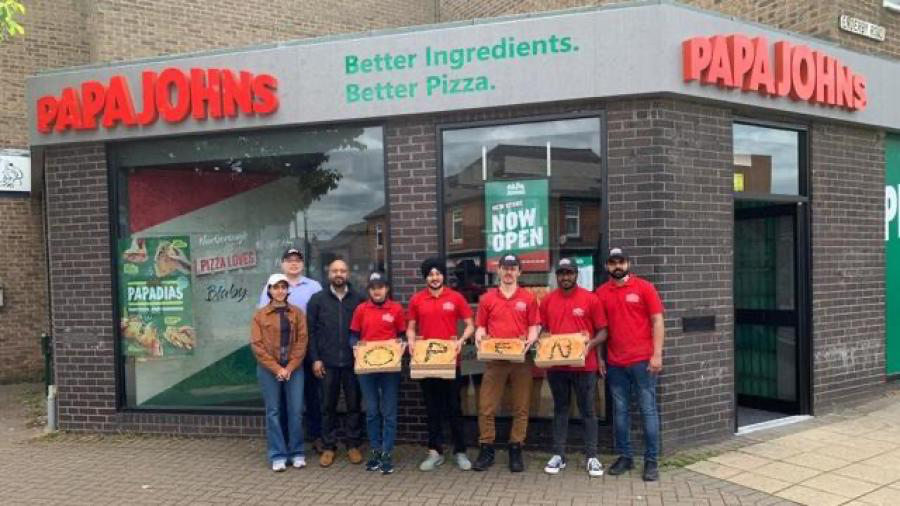
The benefits
“Understandably, launching a business currently is nerve-racking; sadly, no firm is totally recession-proof. Nevertheless, taking the route of business ownership through franchising allows you to go into business for yourself, rather than by yourself,” said Nihiser.
“An independent owner may feel isolated in their predicament when the going gets tough. As a franchisee, however, you have the advantage of a system that can assist you in all areas of running your business, not just in difficult times. Due to the ongoing support a franchisee receives from the franchisor and wider franchisee network, franchises frequently have a greater success rate than independently owned businesses, regardless of market conditions.
“Anyone wanting to launch will unavoidably find it more difficult to secure funding during a recession. Lenders, however, look more favourably upon requests for money to support a franchise with a successful track record, rather than an independent initiative, which can be perceived as higher risk.
“Since all of the costly and time-consuming mistakes and diversions have already been made, franchisees benefit from a tried-and-tested business model that can get them on the road to success right away.
“Finding a franchise that is not only in your desired industry, but also established, will ensure you have the best possible backing, while making a living by doing what you love. Established franchises often have strong brand recognition and a positive reputation, making it easier to attract customers and generate revenue. They will have dealt with a range of economic conditions, with the expertise and knowledge to react quickly to evolving consumer purchasing trends. This expertise and the backing of a reputable brand give franchisees a likely advantage over competitors in the market.”
Even in the current financial climate, success stories are still commonplace.
“Although a significant percentage of the population has less disposable income nowadays, there are some commodities and services that people simply cannot live without,” Nihiser continued. “This means that if you do your research and select a franchise that is considered essential, there’s a market you can tap into. For example, the need for respectable and well-established coding education services for kids has grown exponentially as a result of the pandemic, when parents saw first-hand how screen time can give their children a rewarding and contemporary education. At Code Ninjas, our franchisees are successful because parents continue to value possibilities that benefit their kids’ professional and personal growth.
“Investing in a franchise can offer security, stability and support. By choosing a well-established and recognised brand, they can minimise risk and maximise chances of success. The franchisor’s experience, support and resources can help franchisees navigate the ups and downs of the market, providing a solid foundation. It may well be the right choice for you.”
Age no barrier
The appeal of becoming your own boss has seemingly never been greater. In fact, 30% of UK adults are considering launching their own business, of which 48% were between the ages of 18 and 24 – equating to more than two million budding entrepreneurs. But it is not solely those just beginning their career… as 60% of those aged between 45 and 54 claimed they would launch their own business alongside existing caring responsibilities (Enterprise Nation, 2023, An enterprising nation! A third of UK adults are thinking about starting a business in 2023).
Despite such large numbers having high business ambitions, 43% of aspiring entrepreneurs across all ages do not believe they will set up their own company (SME Loans, 2020, 64% of Britain’s workforce wants to set up their own business), suggesting business failure is still a huge concern. And this is where franchising can offer the ideal solution.
Like many industries in the UK, the QSR (quick service restaurant) is a male-dominated sector, but things are changing. Kam Bains and her daughter, Simran (now a ‘second generation’ Papa Johns franchisee), are a prime example.
Kam and husband, Sukhy, joined Papa Johns as franchisees in 2011. “When I started, someone might come into a store looking for work and ‘ask to speak to the boss’. They would be surprised when I said: ‘You already are!’ These days, that rarely happens, so times are certainly changing,” said Kam.
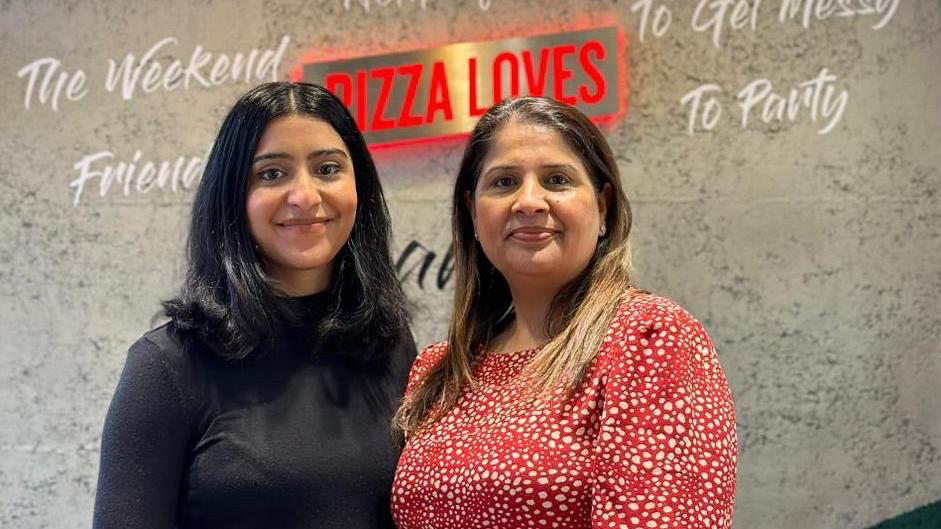
“I’ve been fortunate to be able to bring up our daughter to believe women can do everything men can do. Now, aged 27, she oversees our whole franchised business – including outlets in Nottingham, Derby, Leicestershire and Lincolnshire, to name a few!
“Simran is basically our CEO. She looks after our 15 franchised Papa Johns stores, with four regional managers reporting into her every week, plus she has overall responsibility for our extended team of 300 people. Her economics degree from Nottingham University has helped prepare her for a career in business, but she also has an amazing capacity to handle pressure and thrives on responsibility, taking everything in her stride.”
Simran started to learn the ropes from her parents aged 16. “Working part-time on weekends taught me essential customer service skills, alongside a team, understanding how everyone in the business plays their part to deliver our great pizza,” she explained.
“From a female point of view there is no difference in capability. My mum showed me what’s possible and I’ve been brought up with the confidence to follow in her footsteps. After university, dad had some health issues, so I stepped in to help. I’ve never looked back.
“We ensure there are no barriers or distinctions in our team. It means we promote purely on skills and experience, so there are opportunities for anyone to progress their career across any of our stores, if they are hungry enough.
“Most of our senior team have been with us from the start and we have been pleased to promote from within, rewarding skills, a positive attitude and hard work. This continuity is also great for our customers, as our team really know their jobs and can bake better pizza for everyone to enjoy.
“We often get college students, aged 16-18, plus overseas ones applying for part-time roles. We are positive proof, right at the start of their careers, that women do business well. We also highlight the career opportunities in the QSR industry for anyone who has the appetite to progress.
“The leadership team at Papa Johns, including our franchise business manager, Peter Patel, all promote inclusivity and have been incredibly supportive. This positivity has been key to our success. I might go to a meeting and sometimes be the only woman in the room, but I always feel respected and my ideas are welcomed. The Papa Johns culture judges people on competency – this would not be possible if there was any unconscious bias.”
One challenge Kam did face as a woman was bringing up a young family and building a business at the same time. “It was tough, but we achieved growth through balance. When our children grew up, they helped us. We all do our bit as a family unit. Simran has now taken this to the next level, and I no longer even need to do the payroll!” she revealed.
“One of our stores in the Midlands has recently been named the first centre of excellence and Simran was instrumental in setting this up. In the future, the store will become a hub for training and helping grow new teams for other Papa Johns franchisees across the UK too, which is an incredible achievement.
“We are proud of our daughter and hope her work can inspire other young women to progress and excel in the QSR industry.”
Sunny Chhina is the new vice-chair of PAPA and the man behind Fat Pizza. There’s no one better to guide us through the franchising maze.
Understanding franchising
My parents were franchisees with Perfect Pizza back in the 90s. I became a franchisee with Perfect Pizza, which then became Papa Johns, so I’ve seen things from that side. In terms of Fat Pizza, I was being pushed by people like Just Eat, asking why I wasn’t expanding. The choice was between opening our own stores or becoming a franchisee. Our model suited both, as we are very centralised in terms of what we do. But because I knew franchising, we went with that.
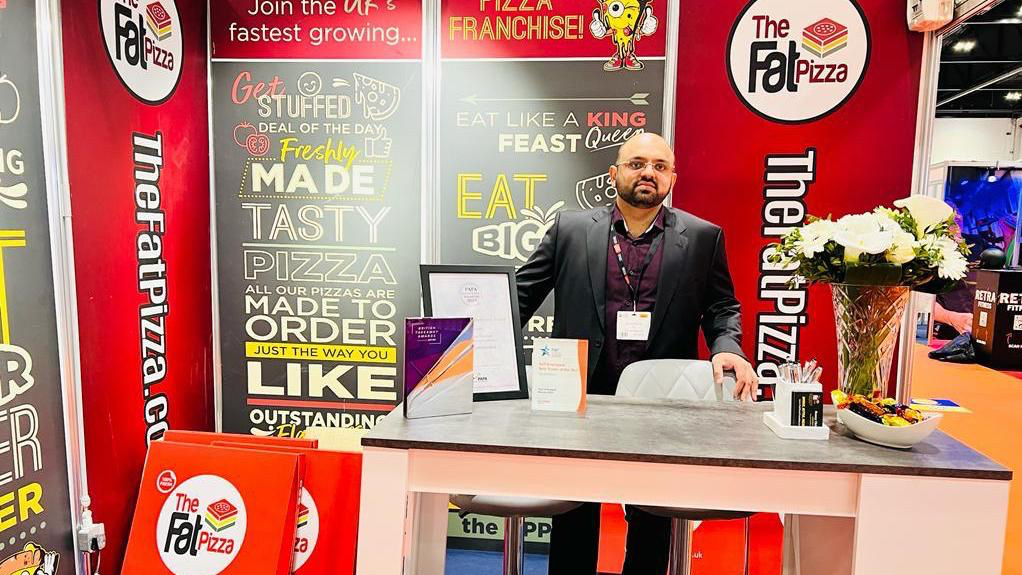
Key areas for a productive process
From my point of view, you need to be able to deliver a framework for people to be successful, whether it’s training or techniques. We even provide 90% of the marketing that we do. The franchisee can be at the lower level, making and delivering pizzas; or they can be managers. The advantage for me is that you have someone else who has a vested interest in ensuring the local store does well. Once that hard work is done, you think about menus and systems – but ultimately, it’s about delivering a good-quality product, as per the specifications, alongside exceptional service.
Main obstacles to overcome
The age-old challenge, which I understand more than most having been at Perfect Pizza, is when sales stagnate. Things are great when they’re increasing rapidly, but on the flipside, you start to ask yourself questions: Is it my fault or the franchisees? And if so, what is wrong? You have more control as an independent.
With our model, we are looking for people willing to get their hands dirty, so to speak. Either they’re going to run it, or a manager is, but we’ve made a lot of things easier. We have a call centre, so store managers don’t have anyone shouting down the phone asking why their food is late. Therefore, it’s imperative deliveries are on time. I can understand intimately a franchisee’s pain point and eliminate them at an early stage.
The Fat Pizza franchise model
We’ve got 30 at the moment, but stopped opening in 2022. With the energy crisis and issues with increasing costs, supplier issues and lead-time frustrations, I couldn’t give a positive profit-and-loss outlook. However, we are restarting around May, with one or two a week. Fat Pizza is an easy concept. We have stores similar to larger chains in terms of the way they look; there are eat-in stores; a pub conversion has just happened. Also, delivery-only stores are opening commercial kitchens, so there is a varied model – that adds to the existing business. But at the end of the day, my concern is always delivery, which is our main port of call. The takeaway trade is a bonus, but also a separate business. If it’s not working so well, we need to assess our burgers, milkshakes and desserts too.
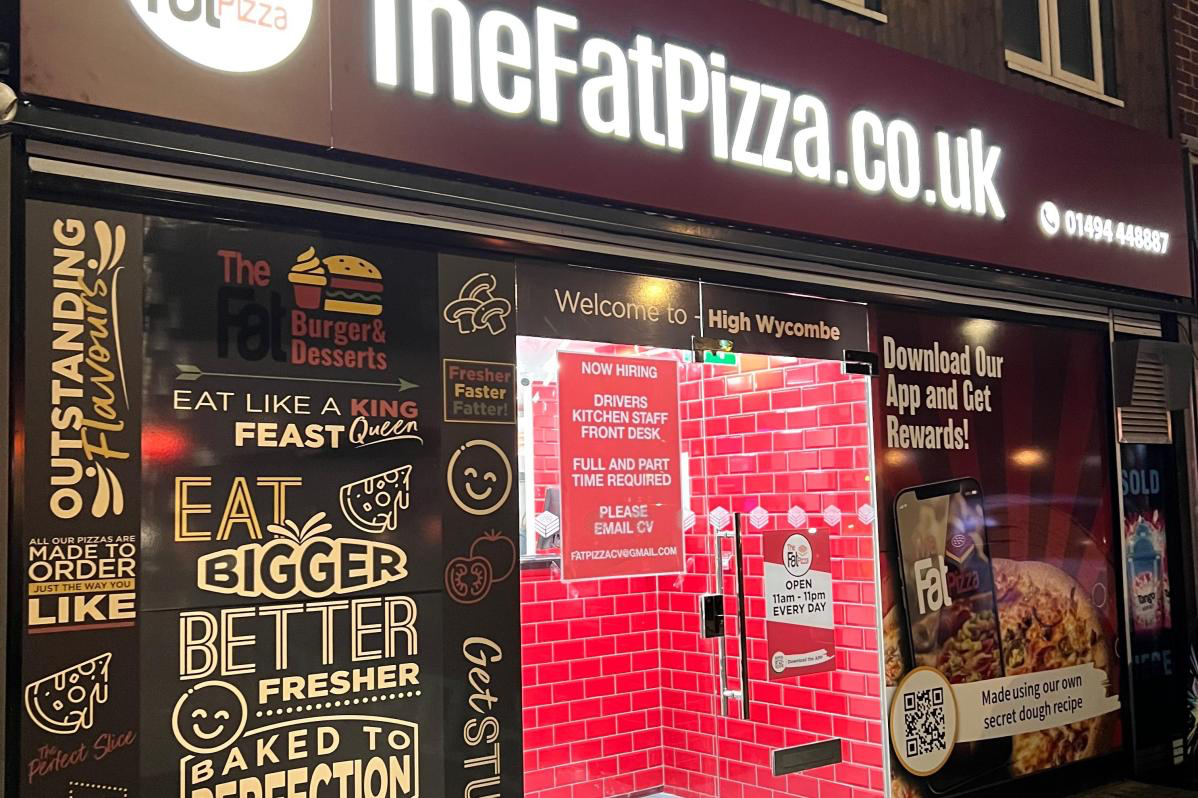
Ahead of the tech curve
We’ve had live delivery driver tracking for seven years, and pride ourselves on being at the fore in terms of useful tech. Customers can watch the driver in real-time. That’s the norm for us, so they expect it. When you have that sort of communication, you’ve ringfenced your business. The new, younger generation of consumer has high expectations – and they need to be met.
Our call centre is housed at a 3,000sq ft commercial kitchen in Southend. We also use it to pilot new products and do testing.
Another key sector is virtual branding – for example, Fat Chick, which appears on aggregators. It’s supplementary, and of course the delivery mode has grown exponentially. We put ourselves on there, looking to evolve and redevelop. The nature of it keeps on changing in terms of what people are looking for, but the core is Fat Pizza. Our competitive advantage is I know we’ve got the product – and I create the secret recipe. I’ve also been in the business so long, I learnt digital marketing via phones, graduated to digital, and have now developed the app. Reach and awareness is important, but all I care about is sales. The strategy is all mine, and the key is exceptional pizza. That’s everything!
Trends for the future?
I believe that menu re-engineering is a given, considering the increased costs of ingredients. Yes, prices may come down at some point, but others will remain high, no matter what. You can’t keep putting higher prices on the consumer, so you must consistently examine what you are doing and how you are doing it – producing a quality product, but maybe in a different way. A lot of progress is related to menu development.
The aggregators are also in a bit of a quandary as to what they actually are. The grocery delivery sector has taken off hugely, so revenue for takeaways (chains and independents) is under a lot of pressure. The app and website functions are so vital. The online aggregators are giving more information to consumers, who can simply compare more pizza shops, so it’s imperative everything you do is for a reason, and you believe in what you are saying.
Advice for any future franchisees?
The first thing is to make sure you have systems in place. If you’re moving from one business to two, ask yourself if you can take a four-week holiday. If you can, then you’ve got the ability to expand. Obviously, you need to be successful in your pilot, which is why the company stores can be so important – profitability is a given. Also, I don’t think you can be a successful franchise if you’re relying on a skilled chef. When they go, things change, and a new face may have different opinions. Therefore, setting up simple processes is so important. Our dough is made in-store, but you need to deskill that process. It’s the first thing we teach people, and we have videos on how to make everything. That’s the way I’ve done things.
I went to a seminar in Las Vegas years ago, and the message was that you need a system in place so that you don’t have to rely on common sense. The simpler the instructions, the better – and people love it. Finally, look after your staff. With the current skill shortages and lack of labour, how you retain people is key.

